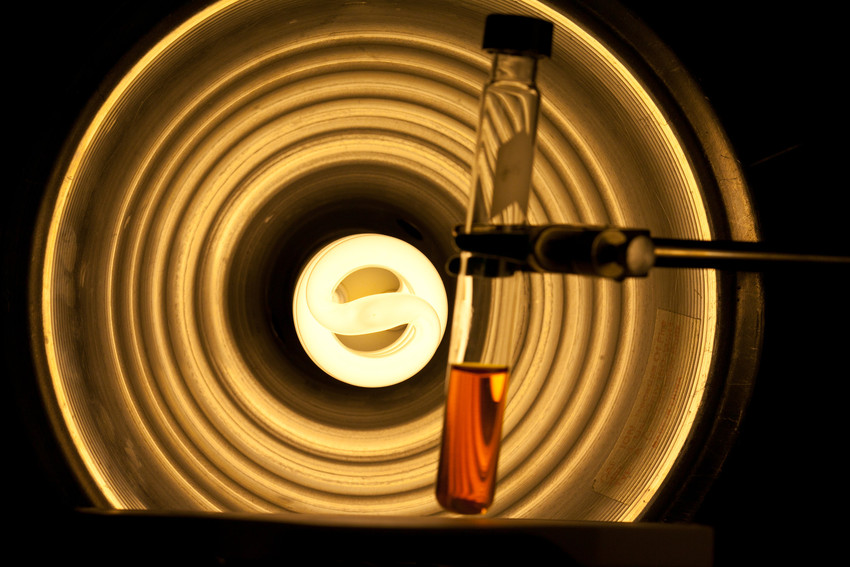
FAYETTEVILLE, Ark. – The Honors College has awarded almost $60,000 in grants to faculty across campus to promote undergraduate research and honors student researchers working in a broad range of disciplines. Grant monies will be used to purchase materials ranging from statistical software to a system that measures cardiopulmonary stress, energy assessment and resting metabolic rate.
“The goal with these new grants is to help our faculty get the tools they need to carry out rigorous undergraduate research programs,” said Lynda Coon, dean of the Honors College. “Our honors professors are already doing a tremendous job mentoring undergraduate researchers – this grant will help them take those research opportunities to the next level.”
The new grant is funded by a portion of the $300 million gift made by the Walton Family Charitable Support Foundation in 2002. The grants are designed to help tenured and tenure-track faculty individually, or in teams, purchase specialized equipment or technology that will make a transformational difference in their undergraduate research programs. For more information visit the Honors College website.
Faculty who were awarded:
Juan Jose Bustamante, assistant professor, sociology/Latin American and Latino studies: Bustamante’s research examines how and to what extent Latino population growth, distribution and age-structure impact Northwest Arkansas’ educational, housing and public safety services.
Robert Coridan, assistant professor, chemistry and biochemistry; Jingyi Chen, assistant professor, chemistry and biochemistry; Stefan Kilyanek, assistant professor, chemistry and biochemistry: This group is working to develop catalysts and materials for converting sunlight into specific bonds.
Matthew Ganio, associate professor, health, human performance and recreation; Jamie Baum, assistant professor, food science: This grant will support research investigating the cardiovascular and thermoregulatory implications of exercise and heat stress; the team also seeks to define the role of diet on body composition, energy metabolism and metabolic health throughout a person’s life.
Michelle Gray, assistant professor, health, human performance and recreation; Nan Smith-Blair, associate professor, nursing; Sara Collie, field education director, social work: This team seeks support for an interdisciplinary transitional care intervention to reduce 30-day readmission rates of patients with diagnosed congestive heart failure who have been recently discharged from the hospital.
Lauren Greenlee, assistant professor, chemical engineering: Greenlee’s research focuses on novel nanostructured, non-precious metal catalysts for water treatment and electrochemical energy conversion applications.
Patricia Herzog, assistant professor, sociology and criminal justice; Casey Harris, assistant professor, sociology and criminal justice; Shauna Morimoto, associate professor, sociology and criminal justice: This proposal requests funds to support undergraduate research experiences for honors students enrolled in a course named The Science of College – Perspectives in Analytics, which will be offered in fall 2016 as a special section of the broader University Perspectives course.
Mack Ivey, associate professor, biological sciences: Ivey’s research focuses on Clostridium difficile infections, which have recently been identified as one of the four most urgent antibiotic-related diseases in humans.
Lanier Nalley, associate professor, agricultural economics: Nalley’s proposal supports students who collect data on a service-learning program in Northern Mozambique, where they survey families on issues such as food security, micro nutrient deficiencies and infectious diseases.
Sarah Nurre, assistant professor, industrial engineering; Sarah V. Hernandez, assistant professor, civil engineering: Scarce truck parking and hours-of-service regulations are two of the top 10 concerns in the trucking industry. The proposed research will quantify how hours-of-service limits impact parking and recommend enhancements to the capacity and locations of parking to ensure safe and timely delivery of goods.
About the Honors College: The University of Arkansas Honors College was established in 2002 and unites the university’s top undergraduate students and professors in a learning environment characterized by discovery, creativity and service. Each year the Honors College awards up to 90 freshman fellowships that provide $70,000 over four years, and more than $1 million in undergraduate research and study abroad grants. The Honors College is nationally recognized for the high caliber of students it admits and graduates. Honors students enjoy small, in-depth classes, and programs are offered in all disciplines, tailored to students’ academic interests, with interdisciplinary collaborations encouraged. Fifty percent of Honors College graduates have studied abroad – three times the national average – and one hundred percent of Honors College graduates have engaged in mentored research.
About the University of Arkansas: The University of Arkansas provides an internationally competitive education for undergraduate and graduate students in more than 200 academic programs. The university contributes new knowledge, economic development, basic and applied research, and creative activity while also providing service to academic and professional disciplines. The Carnegie Foundation classifies the University of Arkansas among only 2 percent of universities in America that have the highest level of research activity. U.S. News & World Report ranks the University of Arkansas among its top American public research universities. Founded in 1871, the University of Arkansas comprises 10 colleges and schools and maintains a low student-to-faculty ratio that promotes personal attention and close mentoring.
Topics
Contacts
Lynda Coon, dean
Honors College
479-575-7678, llcoon@uark.edu
Kendall Curlee, director of communications
Honors College
479-575-2024, kcurlee@uark.edu